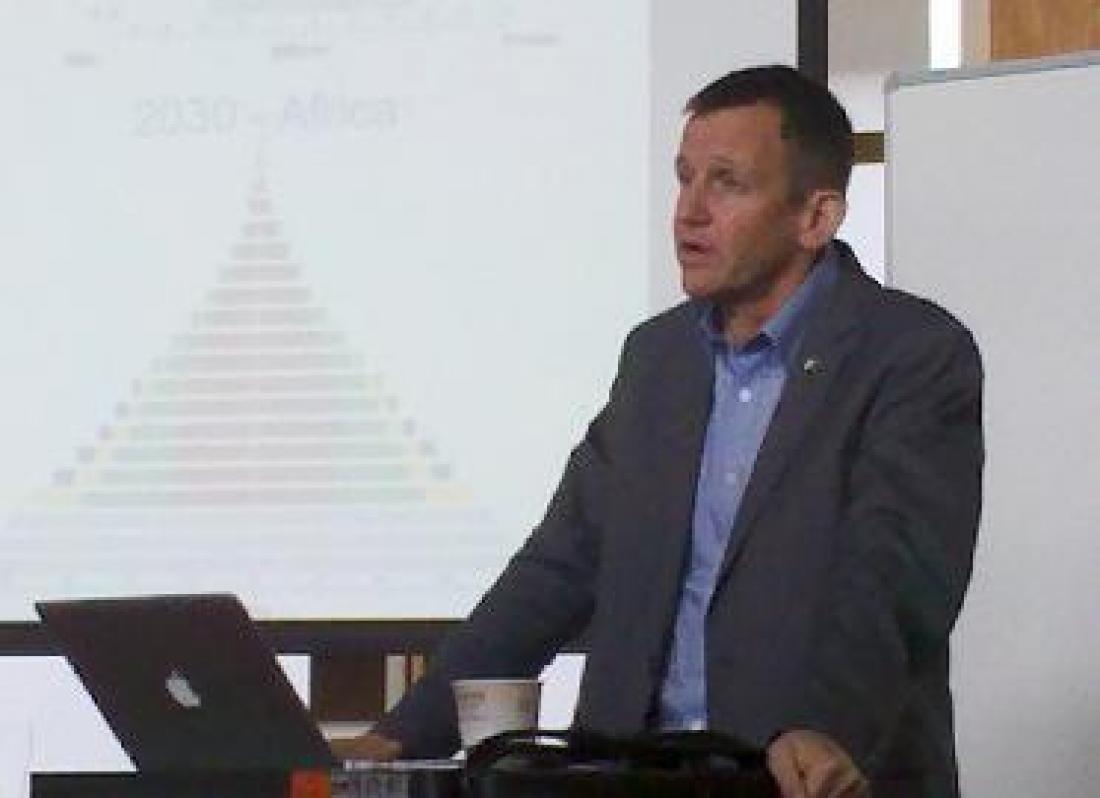Written by Patrick Kavanagh
Africa continues to face serious challenges. On several measures of human development, many of its 54 countries rank near the bottom of the scale.
Lately, however, the continent has been the source of encouraging good news, particularly in the spheres of knowledge creation and innovation. In recent years Africans have made significant progress in crucial sectors such as communications technology, food security, and governance.
Tilt toward peace
According to South African researcher Jakkie Cilliers, Africa has advanced also in the area of human security. Since the turn of the millennium, he says, “We have seen a dramatic decline in conflict – something like a two-thirds decline.”
There are several reasons for the sudden shift toward peace, says Cilliers:
(1) African governments have improved their performance generally, which includes boosting their capacity to provide security.
(2) Africans are taking more of a leadership role in peacemaking and other forms of international engagement. Increasingly they seek “African solutions to African problems.”
(3) Although much still needs to be done, the continent has witnessed a strengthening of democracy and respect for human rights.
(4) And, thanks to improved macroeconomic management, strong commodity prices, and reduced debt, most African economies have grown steadily for almost a decade.
Leading think tank
Cilliers had served for 14 years as an artillery officer in the South African Defence Force, but resigned for political reasons in 1989. In 1991 he co-founded the Pretoria-based Institute for Security Studies (ISS), and is today its executive director.
Initially, ISS focused on researching defence issues such as the institution of civilian control over South Africa’s military. When that was achieved, the organization adopted a more expansive definition of human security. Its website says, “ISS works towards a stable and peaceful Africa characterised by sustainable development, human rights, the rule of law, democracy, collaborative security and gender mainstreaming.”
A long-time IDRC grantee, ISS has been named one of Africa’s foremost think tanks.
In November 2010, Cilliers visited IDRC to talk about the future of Africa. Here follow some highlights from his presentation.
Population growth = economic growth
According to Cilliers, the basis of sustainable African security is a healthy economy. Furthermore, he argues that bigger cities fuel healthier economies: “Historically, population growth and urbanization have been the main drivers of economic growth, and that will also be the situation in Africa.”
Cilliers notes that Africa now has 14% of the world’s population. Even factoring the impact of AIDS, by 2050 it will have 25% – that is, one in every four persons on the planet will be African. Before 2027, Africa will have more people than does China or India.
Although the picture is hugely complicated, ultimately Africa’s demographic momentum is expected to translate into economic momentum. The ISS forecasts that gross domestic product (GDP) will increase in Africa, and eventually, so too will per capita GDP.
Economic well-being bodes well for African security because, Cilliers agues, “The most powerful predictors of civil conflict are weak economic growth and volatile low income.”
Climate change
Although in itself not a direct cause of conflict, climate change can make existing problems worse, and so it can pose a serious threat to Africa’s security. For example:
(1) Reduced supplies of water combined with growing demands for it could lead to increasing competition, perhaps ultimately to violence.
(2) Reductions in crop yields and increasingly unpredictable global weather patterns may contribute to higher food prices and greater food insecurity, eventually triggering riots.
(3) Sea level changes, natural disasters, and the reduced viability of farmland may cause destabilising population movements.
The impacts of climate change will not happen in a uniform manner across Africa, but will be magnified or moderated by underlying conditions of governance, local poverty levels, and the nature of resource management.
Much more
Cilliers touched on many other issues, including Africa’s relationship with China and India, trans-boundary disputes over water, and the conflicts in Somalia, Sudan, and the Democratic Republic of the Congo. He concluded by arguing that the major security challenge facing Africa is the management of its urban spaces, and he highlighted flashpoints such as the large numbers of unemployed and poorly educated young men, urban gangs, and private security firms.



